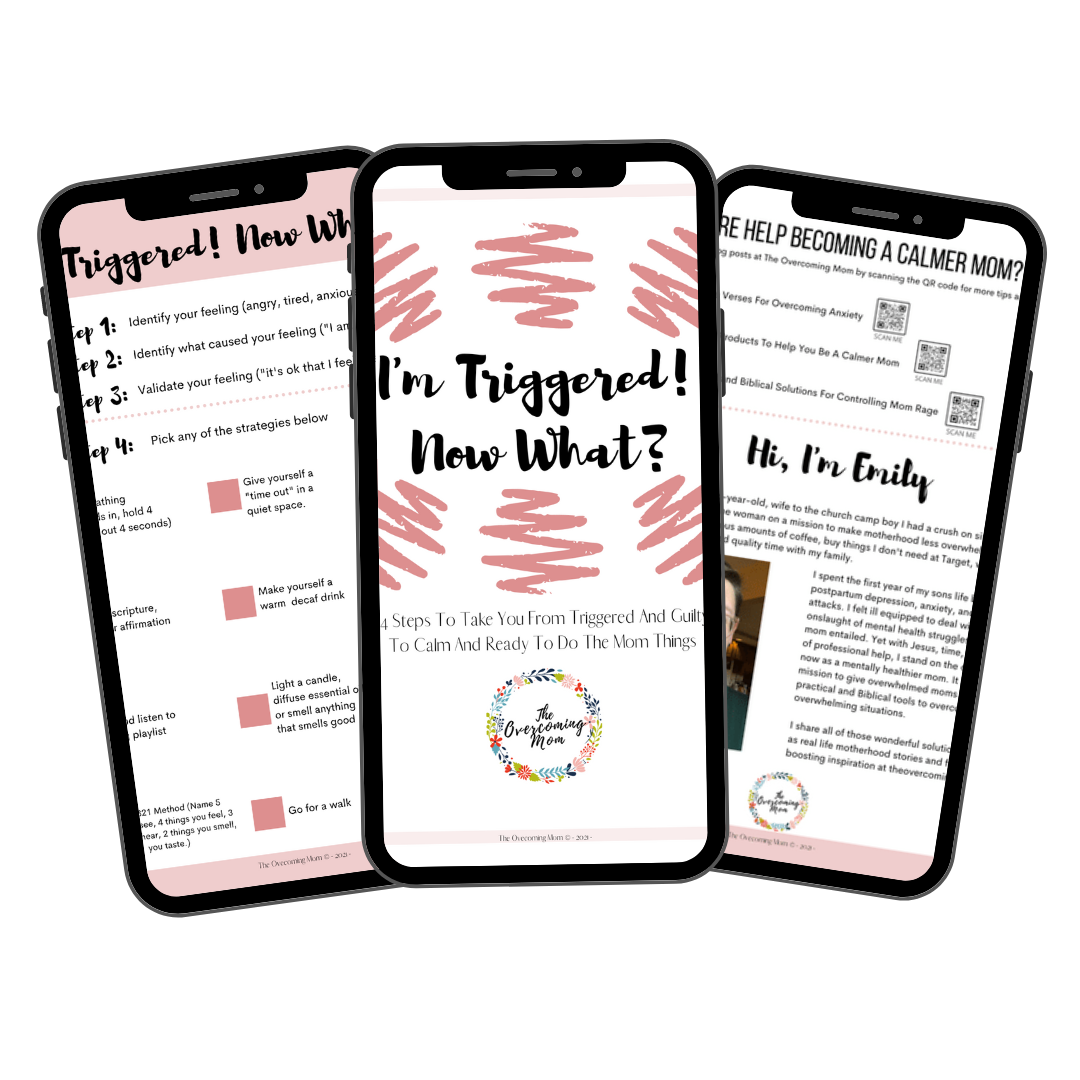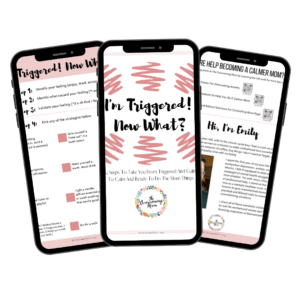This page may contain affiliate links. As an Amazon Associate I earn from qualifying purchases. If you want more information, please see my Affiliate Disclosure.

I’ve struggled with mental illness my entire life. Since I was a young kid, I’ve battled panic attacks, anxiety, and depression. During pregnancy and postpartum I struggled with postpartum depression and anxiety. I am lucky to have many friends and family who help and support me through my illnesses, especially my husband. I’ve also encountered many unhelpful people in my mental illness battles. Through my struggles, I’ve been able to gather what I have found to be helpful, as well as unhelpful.
1 in 5 people suffer with a mental health disorder, which means at some point in time you’re going to probably encounter someone whose struggling with their mental health. Suffering with mental illness is incredibly challenging, but watching a loved one suffer can be just as trying. Finding the right thing to say or do can be challenging, especially if it’s not anything you have personally experienced. Here I want to give you a few tips on how you can help a loved one with mental illness.
Recognize warning signs of mental illness
There are many mental illnesses out there, all with varying symptoms. Some people may start showing more obvious and distressing signs, while others may conceal them better. Recognizing warning signs of mental illness is vital, because most people with mental illness are not going to self diagnose, unless it’s an issues they’re already aware of.
The National Alliance Of Mental Illness has an extensive list of mental health warning signs to look for. Familiarizing yourself with some of these could be key in helping your loved one.
Recognizing symptoms can often be easier for someone on the outside than the person themselves. When you’re dealing with mental illness personally, it can be hard to say “I have a problem,” because your problem feels more like an extension of yourself than a problem. For example, someone whose experiencing depression is more than likely not going to say “I’m depressed,” to you. They’re probably going to say things like, “I’m tired. I’m lazy. I don’t want to do anything.” When you have a basic understanding of what mental illness could look like, you’d look beyond an issue that seems like a personal problem, and realize it could be bigger than themselves.
Related: “5 Myths About Postpartum Depression We Need To Quit Saying”
Be Honest
If you’re seeing some worrying signs of mental illness in a loved one, it’s important to open up the conversation about it without being confrontational or rude.
Avoid using “you” statements when opening up conversation about mental health. A “you” statement might sound like:
- “You’ve been acting strange lately.”
- “Why aren’t you taking care of yourself?”
- “Why haven’t you been talking to anyone lately?”
Even if it’s not intentionally confrontational or offensive, it can seem like it when we use “you” statements. Instead, aim for “I” statements. An “I” statement might sound like:
- “I’m noticing that you’ve been seeming down lately.”
- “I’m worried about you.”
- “I noticed you have been keeping to yourself a lot lately.”
When we reframe the conversation away from their issue and more towards your care and empathy, then it opens up more conversation.
Don’t try to fix them
Being honest doesn’t always mean we need to be quick to fix every issue. Attempting to fix a persons problems can be devastating. Oftentimes for those with mental illness, their symptoms feel more like an extension of themselves than a symptom. If you approach things with a “fix it” mentality, you could come off as offensive and insensitive.
Attempting to “fix” someone’s mental illness can look like a few things, but here’s a few examples
- “Stop being depressed/anxious/etc.”
- Sharing motivational statements or platitudes
- Giving unsolicited advice
Most people don’t think they’re attempting to fix someone with mental illness, if anything they truly believe they’re being helpful. But when trying to help a loved one with mental illness, just be mindful of how you speak to them. I’ll go more into that later in this post.
Related: “9 Phrases To Never Say To Someone With Anxiety”
Become a pro at listening, even if you don’t understand
Instead of attempting to fix their issues, listen. Let them feel comfortable being open with you. Nobody says you have to have the right things to say. In fact, listening well is one of the most valuable things you can do for someone struggling with mental illness. Some people will want your feedback or advice, but often people just need to vent, and release their mental load onto someone whose willing to listen.
It is possible that when listening to your loved one that you may struggle to understand what they’re dealing with fully. For example, if you’ve never experienced anxiety, you may struggle to understand why someone else would. Listening doesn’t always mean you fully understand or even sympathize with the issue, but you are open to learning and understanding more.
Speak With Validation
Even if you don’t fully understand why they may be feeling a certain way, be ready to be validating. Here’s what I mean by being validating. If a friend discloses to you that they’ve been in a funk, and just not feeling fulfilled in life and frequently sad and lethargic, it wouldn’t be very validating to say “cheer up, buttercup! Everything happens for a reason! Just get over it and think positively!” You may want to meet them where they are, and try something like “it’s ok to feel that way. I am here for you, and you can tell me anything.” Even if the things they tell you are confusing to you, or something you can’t relate to, it doesn’t mean that it isn’t
Validation can be incredibly life giving to someone who is struggling with mental illness. Like I stated earlier, mental illness doesn’t feel like a separate entity to the person with it, it feels more like an extension of themselves. When that person that is struggling hears “It’s ok to not be ok,” or “you’re allowed to feel that way,” you’re taking away the shame of their struggle.
Don’t just say “let me know if you need help,” actually roll up your sleeves and help
This piece of advice can be nuanced, depending on the loved one you’re helping. Some people may deeply appreciate you offering to help, while others may find it insulting. So take this with a grain of salt, depending on the person you’re trying to help.
If you’re noticing that your loved one is struggling with different aspects of life, then offer your assistance where you can. For example:
- If they’re struggling with cleaning their house, offer to come over and help.
- If they’re struggling with making it to doctors appointments or other obligations, offer to give them a ride.
- Offer to give or find childcare for them while they take a break.
- Cook them a meal, or take them out for a meal.
There’s a big difference between saying, “let me know if you need anything,” and stepping up and giving them what they need. For some people, being the help they need at the moment can be incredibly life giving.
Prepare resources for professional help
Seeking out professional help is a massive milestone for anyone with mental illness. For many people, they’re fighting against a personal and societal stigma towards mental illness, and they need to know that seeking help is a sign of strength, not weakness.
Finding professional help can be incredibly overwhelming for someone whose in the thick of it, so having resources prepared ahead of time can be a huge help.
Here’s a list of professional mental health organizations that can help. Many of these websites also have provider databases that can help you find therapists and other mental health providers and resources in your area:
- National Alliance for Mental Illness
- Substance Abuse and Mental Health Services Administration
- National Suicide Prevention Lifeline
- Postpartum Support International
- Anxiety and Depression Association of America
- Center for Disease Control and Prevention
- American Psychological Association
You can’t make a person’s mental illness go away, but you can help them through it
A key factor in a person’s ability to cope with mental illness is whether they have people around them who love and support them in their journey. As someone whose struggled with mental health for a long time, I understand how lonely it can feel. I have found that the most life-giving help I have received from loved ones was when people simply expressed their love for me, offered their support, and listened really well.
Understand that though you’re not able to fix their problems or make them go away, you are able to be there for them. You are able to listen, offer assistance, and love unconditionally. When you show that love by helping in those area’s, that can seriously turn the tides for those who are struggling with mental illness.











